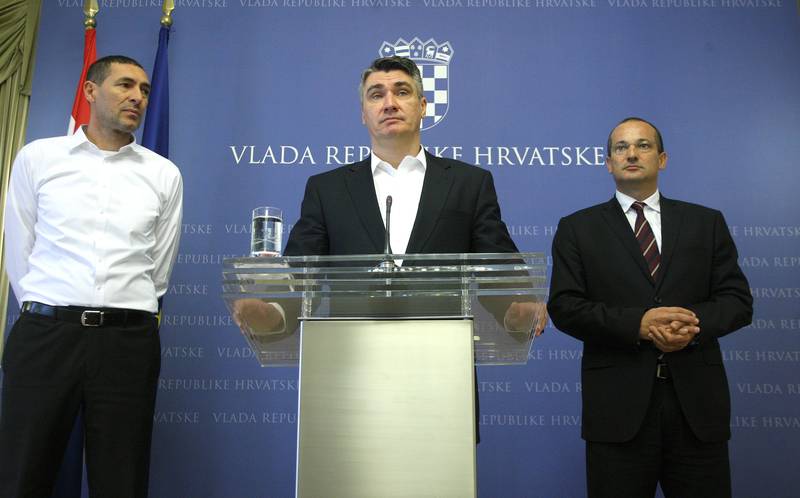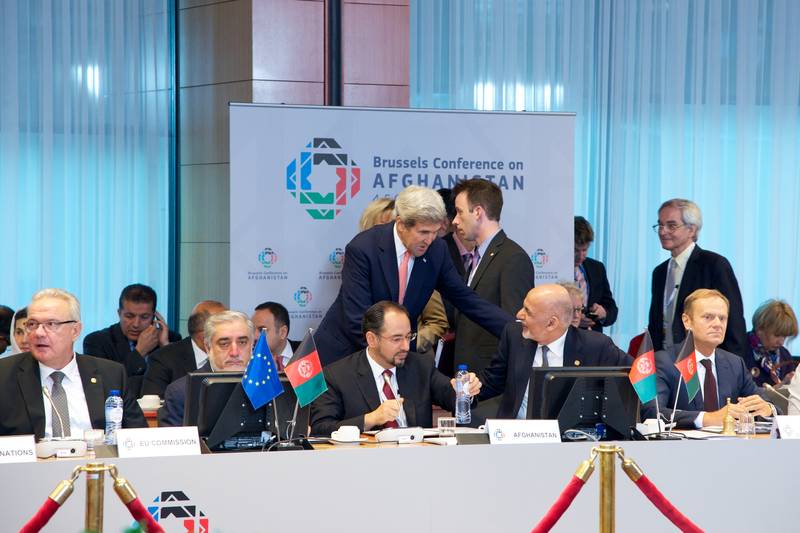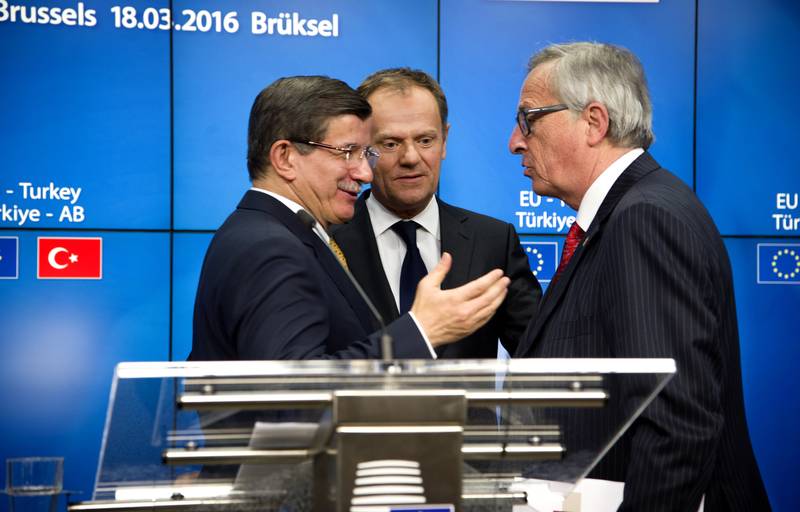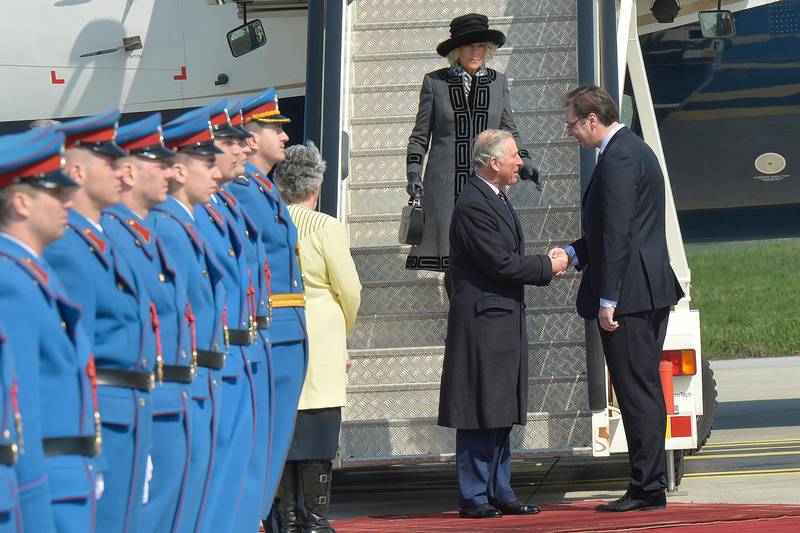Zoran Milanović: Croatia Has a Heart, but a Brain too
Adelina Marini, September 19, 2015

Until 15:00 Central European Time on September 18th, 15 400 refugees had entered Croatia. The euphoria of the first day when only 500 people a day were expected is long gone. Tension came in its place. The country has not yet lost its humanitarian outlook but does not wish to become a hotspot of the EU. According to authorities, the Croatian capacity has reached its limit. The straw that broke the back of Croatian patience, however, was the alliance of Slovenia and Hungary against Croatia. After consultations between the two states Slovenia decided not to accept any refugees and shut its border with Croatia. Railroad connections between the two states are shut down. Meanwhile, the Hungarian foreign minister criticised Croatia by saying that the Croatian migration system collapsed in just a single day, which means the country is not ready for Schengen membership. Moreover, he said, Croatia will need years to be fit for accession.
Similar statements came out of Ljubljana. This forced Croatian Prime Minister Zoran Milanović to call an emergency press conference, at which he directed sharp criticism at the entire EU, as well as at Slovenia and Hungary. He attacked the opposition as well. Mr Milanović began by saying that the current situation is not threatening Croatia’s security but it does create a problem. Unlike other states Croatia has a heart, but it also has a brain. We are not going to build wire fences, the physical shutdown of the borders is impossible, said Zoran Milanović. “Our neighbours have very quickly joined forces in solidarity and are pointing a finger at Croatia. What do they want us to do? To close the border? To act like Hungary? To put up barbed wire?”, asked the prime minister. He did, however, warn that the current situation will have negative effect on tourism, which is a staple livelihood for Croats. Many tourists will cancel their reservations in fear that they will not be able to go back home if Slovenia and Hungary keep their borders closed.
Croatia itself did close all its minor border crossings with Serbia last night. Bajakovo remains the only one open. The PM ensured that this crossing will not be shut down because it is “the living artery of Croatia”. Regardless of the shutting down of all minor crossings, the inflow of refugees continues, it has just slowed down. Milanović also said in the presence of his Minister of Defence Ante Kotromanović that dislocation of troops along the border is not an answer and is illegal as well. This was a message to President Kolinda Grabar-Kitarović who requested that the army heightens its state of alert. “The army is also not a solution. It is not constitutional and it is not civilised”. He stressed on several occasions that there was no way the border can be closed. Just the crossings. “During the Cold War it is known how this is done [closing off an entire border]. Whoever has driven through Czechoslovakia and Hungary – in Hungary you passed through military cordons, rows of barbed wire, and minefields. I do not want such Europe. This is not the Europe Angela Merkel wants either”.
Croatia will not be a hotspot
Croatian PM pointed out that, to him, Germany’s policy is generous and good, but has at the same time served as an invitation to refugees. He reminded, however, that Ms Merkel herself stated that the Dublin regulations are practically not in force. Croatia refuses to turn into a hotspot. Behind these pretty words, Zoran Milanović explained, hides the turning of Croatia into a gathering centre for the refugees in Europe. In the European Agenda on Migration presented in May, the European Commission proposed the creation of hotspots. Those are countries that are facing disproportionate migratory pressure at the EU’s external border. What is being suggested is sending teams of the European Asylum Support Office (EASO), EU Border Agency (Frontex), EU Police Cooperation Agency (Europol) and EU Judicial Cooperation Agency (Eurojust) into the affected country with the task of aiding national authorities in their efforts to fulfil their obligations under EU law.
It is exactly that which got criticised by Zoran Milanović during his press conference on Friday noon. The source of the problem he sees in Greece, who does not control its Schengen border and shuts its eyes. Almost all refugees pass through the several miles of sea border between Greece and Turkey with the help of Greek authorities, instead of having the coastguard better organised. If Greece is unable to provide security for its border let Germany and Croatia send ships there and take over guarding it, said the PM and added that in this area there already is a Croatian police vessel. He refused to speculate on why is Greece letting refugees through but hinted that the reasons might be emotional. He expressed his puzzlement as to why the EU takes no action.
“We ask the EU and the ones that simply do not wish to find a solution to understand that Croatia will never be what is named in the bureaucratic circles of Brussels, with their minimum wage of 10 000 euro, a hotspot. There will be a hundred thousand poor people in Croatia, Hungary and Slovenia will shut their Schengen borders and then, using some criteria of their own, will select which ones they like and which ones they don’t”, said the Prime Minister. He sent an appeal to the refugees to keep passing through Croatia. “Keep going further! Not because we do not love you. Not because you trouble us. Because your end destination is the European North”, he explained. He reminded that over 90% of the ones that passed through Hungary were not registered, which is a breach of the rules. Schengen, in his words, has not fallen apart, just the Dublin Regulation. The current Schengen framework is just a garment that is one size smaller than the body, which also grew larger, he explained.
Hungary is to take them back in
He also sent a direct threat to Hungary in saying that the refugees will be redirected towards the Hungarian-Croatian border. Budapest announced yesterday that it is beginning to build a fence along this border as well. “If it is no drama to the Germans and Austrians [to take in refugees] I do not see what the problem is with Slovenia and Hungary? Are they not clean enough to pass through Slovenia?! In times of crisis it is most evident who is who – politician, human being, leader, decision-maker,” added the Croatian PM.
He said the government does have a plan B, but did not wish to give further details on it, neither did he answer the question whether Croatia is preparing a strategy in which refugees, who stay in Croatia, are given jobs and integrated. He promised Croatia is not going to sic dogs and stretch barbed wire, but it remained unclear what it will do with the ones that are not allowed to cross into Slovenia or Hungary. “Today we start administering other methods, humane methods, not the ones Hungary is using, because this is a burden we cannot and will not take.” He refused to answer specific questions, which goes to show the only purpose of this press conference was to send a message to Brussels, Budapest, Ljubljana, and the offices of the President and the HDZ.
Milanović used the subject for a political attack against his opponent Tomislav Karamarko, leader of the opposition Croatian Democratic Union (HDZ), and President Kolinda Grabar-Kitarović, who won the presidential elections as a HDZ candidate. According to him, those who are trying to gain political dividends from a humanitarian problem are already digging under the bottom. All of this is happening on the eve of parliamentary elections in Croatia, which are expected to be held this autumn (October or November).
It becomes clear from Milanović’s words that Croatia will be against the hotspots proposal, which will be discussed again at the next consecutive emergency meeting of the EU’s Interior Affairs Ministers on September 22nd and at the emergency summit a day later. His main message was that Croatia can deal with the refugees but it shouldn’t, because it is not fair for some “to turn their head and check what is happening in Croatia on the principle ‘Oh worry of mine, go elsewhere’”. By all accounts, the problem will return where most of the EU’s problems have been starting lately – Greece. It can be concluded by the level of tension that the moment is ripe for the leaders to sit down and say some things to each other in the eye. Will this bring a solution to the problem with the thousands of refugees? It is difficult to foretell. In Croatia, however, they are convinced things can no longer go on like that. This means that the claim of EU spokespeople from the last few days that “this is how the EU works” will no longer be tolerated.
Translated by Stanimir Stoev
 Kolinda Grabar-Kitarovic | © KGK
Kolinda Grabar-Kitarovic | © KGK Jozo Rados | © European Parliament
Jozo Rados | © European Parliament Aleksandar Vucic, Andrej Plenkovic | © Vlada RH
Aleksandar Vucic, Andrej Plenkovic | © Vlada RH | © Council of the EU
| © Council of the EU Davutoglu, Tusk, Juncker | © Council of the EU
Davutoglu, Tusk, Juncker | © Council of the EU | © Vlada RS
| © Vlada RS